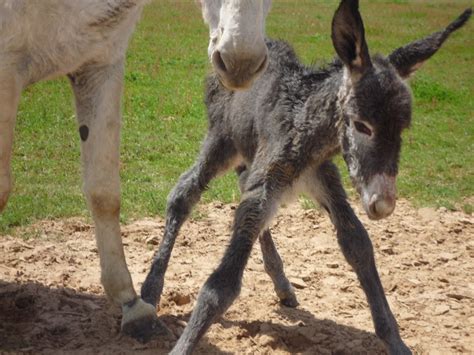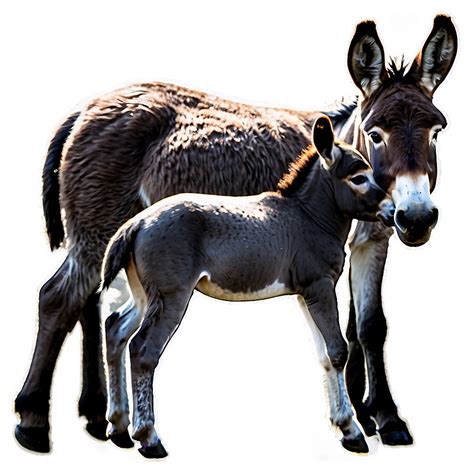
A heartwarming video of a young octopus attempting to play with a diver off the coast of Kona, Hawaii, has captivated audiences online, showcasing the creature’s playful curiosity and sparking widespread delight. The diver, known as @MassimoUsai on Instagram, captured the encounter, which quickly went viral, highlighting the intelligence and engaging nature of octopuses.
The video, posted on social media, shows the tiny octopus extending its tentacles towards the diver, seemingly initiating a playful interaction. The encounter, described as “adorable” and “precious” by viewers, provides a rare glimpse into the social behavior of these often-elusive marine animals. The diver, who frequently documents his underwater encounters, expressed his own amazement at the octopus’s friendly demeanor. “This precious little octopuss [sic] wanted to play,” he wrote in the caption accompanying the video, which has garnered significant attention and positive reactions across various platforms.
Encounter Details and Social Media Buzz
The video opens with the diver approaching a small octopus nestled among the rocks and coral of the Hawaiian reef. Instead of retreating, as octopuses often do when approached by humans, this particular cephalopod extends a tentacle, reaching out towards the diver’s camera. The diver gently responds, and the octopus appears to reciprocate, creating a brief but memorable interaction.
“It was such a cool moment,” said one commenter on Instagram. “I never knew octopuses could be so friendly!” This sentiment is echoed throughout the comments section, with many users expressing their surprise and joy at witnessing such an interaction. The video has been shared extensively on platforms like Twitter, Facebook, and TikTok, reaching millions of viewers worldwide.
The widespread popularity of the video has also led to increased interest in octopus behavior and marine conservation efforts. Several organizations dedicated to protecting marine life have shared the video, using it as an opportunity to educate the public about the importance of preserving ocean ecosystems.
Octopus Intelligence and Behavior
Octopuses are renowned for their intelligence and problem-solving abilities. They are capable of complex behaviors, including learning, tool use, and even camouflage. Their brains are structured differently from those of vertebrates, with a decentralized nervous system that allows each arm to operate independently. This unique neurological structure contributes to their remarkable dexterity and adaptability.
“Octopuses are among the most intelligent invertebrates on Earth,” says Dr. Jennifer Mather, a cephalopod expert at the University of Lethbridge. “They have demonstrated the ability to solve puzzles, navigate mazes, and even recognize individual humans.”
In addition to their cognitive abilities, octopuses are also known for their remarkable camouflage skills. They can change the color and texture of their skin in a matter of seconds to blend in with their surroundings, making them masters of disguise. This ability helps them to avoid predators and ambush prey.
Octopuses typically lead solitary lives, with limited social interaction outside of mating. However, recent research suggests that some species may engage in more complex social behaviors than previously thought. The viral video of the octopus playing with the diver offers further evidence of their capacity for interaction and curiosity.
Diver’s Perspective and Ethical Considerations
The diver who filmed the encounter, @MassimoUsai, is an experienced underwater photographer and videographer. He regularly shares his encounters with marine life on social media, aiming to raise awareness about ocean conservation. In an interview, he emphasized the importance of respecting marine animals and their habitats.
“It’s crucial to approach these creatures with caution and respect,” he said. “We should never interfere with their natural behavior or put them in harm’s way.”
The video has also sparked discussions about the ethical implications of interacting with wild animals. Some experts caution against anthropomorphizing octopuses or assuming that they are always interested in playing.
“While it’s tempting to interpret this interaction as playful, it’s important to remember that we don’t fully understand the octopus’s motivations,” says Dr. Peter Godfrey-Smith, a philosopher of science and author of “Other Minds: The Octopus, the Sea, and the Deep Origins of Consciousness.” “It could be curiosity, a search for food, or even a defensive response.”
Despite these caveats, the video serves as a reminder of the wonder and complexity of marine life. It also underscores the importance of responsible interactions with animals in their natural habitats.
Conservation Implications
The oceans face numerous threats, including pollution, overfishing, and climate change. These threats impact marine ecosystems and the animals that depend on them, including octopuses. By raising awareness about the intelligence and behavior of octopuses, videos like this can help to promote ocean conservation efforts.
“When people see how intelligent and engaging these animals are, they are more likely to care about their welfare and the health of their habitats,” says Sarah Piwinski, a marine biologist with the Ocean Conservancy. “Videos like this can inspire people to take action to protect our oceans.”
There are several ways that individuals can contribute to ocean conservation, including reducing their use of plastic, supporting sustainable seafood choices, and advocating for policies that protect marine environments.
The viral video of the octopus playing with the diver serves as a powerful reminder of the interconnectedness of all living things. It also highlights the importance of respecting and protecting the world’s oceans for future generations.
Further Research and Octopus Farming Concerns
While the viral video promotes affection for octopuses, it also coincides with increasing debates surrounding octopus farming. As global demand for seafood increases, octopus farming has been proposed as a potential solution to overfishing. However, many scientists and animal welfare advocates have raised serious concerns about the ethical and environmental implications of this practice.
Octopuses are highly intelligent and sensitive creatures, and confining them to farms could cause significant stress and suffering. “Octopuses are solitary animals that require complex environments and mental stimulation,” says Dr. Jonathan Birch, a philosopher of science at the London School of Economics. “Farming them in crowded tanks would be extremely cruel.”
In addition to animal welfare concerns, octopus farming also poses environmental risks. The waste produced by octopus farms can pollute coastal waters, and the feed used to nourish the octopuses may be unsustainable. Several organizations are advocating for a ban on octopus farming, arguing that it is neither ethical nor environmentally responsible.
Understanding the complexities of octopus behavior and ecology is essential for making informed decisions about their conservation and management. The viral video provides a glimpse into the fascinating world of octopuses, but it also underscores the need for further research and responsible stewardship of our oceans.
Expanding on Octopus Abilities and Sensory Perception
Octopuses possess sensory capabilities far beyond human comprehension. Their skin, for example, isn’t just for camouflage; it’s covered in chromatophores, iridophores, and leucophores, specialized pigment-containing cells that allow them to change color and texture almost instantly. This ability is controlled by their nervous system and can be used for communication, camouflage, and even attracting mates. They don’t just see color; they feel color.
Their eyes, while lacking a blind spot (unlike human eyes), are also incredibly sophisticated. They perceive polarized light, something humans cannot do, allowing them to see contrasts and patterns invisible to us, particularly useful in murky waters.
Octopuses also have an extraordinary sense of touch. Their suckers aren’t just for gripping; they’re covered in chemoreceptors that allow them to “taste” what they’re touching. This allows them to identify prey, navigate their environment, and even differentiate between objects with incredible precision. The decentralized nervous system means each arm can essentially operate independently, processing sensory information and reacting accordingly, giving the octopus unparalleled dexterity and control.
The Octopus Brain: A Decentralized Wonder
The octopus brain is unlike anything found in vertebrates. While they do have a central brain, a significant portion of their neurons is distributed throughout their arms. Each arm essentially has its own “mini-brain” capable of independent decision-making. This allows the octopus to perform complex tasks simultaneously, such as opening a shell with one arm while searching for food with another.
Scientists are still trying to fully understand how this decentralized nervous system works, but it’s clear that it gives octopuses a unique advantage in their environment. It allows them to react quickly to changes, coordinate complex movements, and solve problems in ways that would be impossible for animals with more centralized nervous systems.
This distributed intelligence is likely what allows octopuses to perform feats of learning and problem-solving that rival those of some mammals. They can learn to open jars, escape from enclosures, and even recognize individual humans. Their intelligence and adaptability make them truly remarkable creatures.
Octopus Lifespan and Reproduction
Most octopus species have relatively short lifespans, typically ranging from six months to five years, depending on the species. This is partly due to their unique reproductive strategy. Female octopuses typically lay a single clutch of eggs and then dedicate themselves to protecting them until they hatch. During this time, they often forgo eating and become increasingly weakened. After the eggs hatch, the female octopus dies.
This sacrificial behavior is thought to be driven by hormonal changes and a strong instinct to ensure the survival of their offspring. Male octopuses also typically die shortly after mating. This short lifespan and single reproductive event means that octopuses have limited opportunities to learn from experience, making their intelligence and adaptability even more remarkable.
The specific reproductive behaviors vary considerably across the hundreds of octopus species. Some deep-sea octopuses, for example, are thought to reproduce multiple times throughout their lives, while others may lay their eggs in specialized structures or even carry them around with them.
The Role of Octopuses in the Ecosystem
Octopuses play an important role in marine ecosystems. They are both predators and prey, helping to maintain the balance of food webs. They feed on a variety of animals, including crabs, shrimp, fish, and other invertebrates. In turn, they are preyed upon by sharks, seals, dolphins, and other larger predators.
Octopuses also contribute to the health of coral reefs and other marine habitats. By preying on certain species, they can help to prevent overpopulation and maintain biodiversity. Their burrowing activities can also help to aerate the sediment and promote nutrient cycling.
The decline of octopus populations could have significant consequences for marine ecosystems. Overfishing, habitat destruction, and pollution are all threats to octopus populations around the world. Protecting octopuses and their habitats is essential for maintaining the health and resilience of our oceans.
Challenges in Studying Octopuses
Studying octopuses in the wild presents numerous challenges. They are often elusive and difficult to observe, especially in deep-sea environments. Their camouflage abilities make them difficult to spot, and their intelligence and adaptability make them adept at avoiding capture.
Scientists use a variety of techniques to study octopuses, including underwater cameras, remotely operated vehicles (ROVs), and tagging. However, these methods can be expensive and time-consuming. Furthermore, capturing and handling octopuses can be stressful for the animals, and it is important to minimize disturbance to their natural behavior.
Despite these challenges, scientists are making progress in understanding octopus behavior, ecology, and evolution. New technologies and research methods are allowing them to learn more about these fascinating creatures than ever before.
The Future of Octopus Research and Conservation
The viral video of the octopus playing with the diver has sparked renewed interest in these remarkable animals. It also highlights the need for further research and conservation efforts.
Scientists are continuing to study octopus intelligence, behavior, and ecology. They are also working to develop new methods for protecting octopus populations and their habitats.
One promising area of research is the development of sustainable aquaculture practices. If octopus farming can be done in a way that is both ethical and environmentally responsible, it could help to reduce pressure on wild populations.
Ultimately, the future of octopuses depends on our ability to understand and appreciate their unique qualities and to take action to protect them from the threats they face. The viral video serves as a powerful reminder of the importance of these efforts.
The Cultural Significance of Octopuses
Octopuses have held cultural significance for various societies throughout history. In some cultures, they are revered as symbols of intelligence, adaptability, and mystery. In others, they are viewed as dangerous or monstrous creatures.
In ancient Greece, the octopus was associated with the sea god Poseidon and was often depicted in art and mythology. In Japan, the octopus is a popular food item and is also featured in traditional art forms such as woodblock prints. The tentacled creature has also made many appearances in modern pop culture, often featured as cunning villains or enigmatic aliens, solidifying its place in global consciousness.
The cultural significance of octopuses underscores the importance of understanding and respecting these animals. They are not just fascinating creatures to study; they are also an integral part of human culture and history.
The Growing Field of Cephalopod Cognition
The study of cephalopod cognition is a rapidly growing field. Scientists are using a variety of techniques to investigate the intelligence, learning abilities, and problem-solving skills of octopuses, squids, and cuttlefish.
One of the most exciting areas of research is the study of octopus camouflage. Scientists are trying to understand how octopuses are able to change their skin color and texture so quickly and effectively. They are also exploring the potential applications of this technology in areas such as military camouflage and adaptive materials.
Another area of interest is the study of octopus social behavior. While octopuses are generally solitary animals, recent research suggests that some species may engage in more complex social interactions than previously thought. Scientists are trying to understand the factors that drive these interactions and the role they play in octopus ecology.
The study of cephalopod cognition is providing new insights into the evolution of intelligence and the diversity of life on Earth. It is also helping to raise awareness about the importance of protecting these remarkable creatures and their habitats.
Conclusion: A Call for Understanding and Conservation
The viral video of the octopus playing with the diver is a reminder of the wonder and complexity of marine life. It also highlights the importance of understanding and protecting these animals and their habitats.
Octopuses are intelligent, adaptable, and ecologically important creatures. They play a vital role in marine ecosystems and have held cultural significance for various societies throughout history.
However, octopuses face numerous threats, including overfishing, habitat destruction, and pollution. Protecting octopuses and their habitats is essential for maintaining the health and resilience of our oceans.
By raising awareness about the intelligence and behavior of octopuses, videos like this can help to promote ocean conservation efforts. They can also inspire people to take action to protect these remarkable creatures for future generations. Understanding is the first step to conservation. Increased empathy based on a more thorough understanding of the complexity of marine animals helps translate to individual actions and broad policy changes that benefit both octopuses and marine ecosystems overall.
Frequently Asked Questions (FAQ):
-
What happened in the video that went viral? A video showing a small octopus reaching out and seemingly trying to play with a diver off the coast of Kona, Hawaii, went viral. The octopus extended its tentacles towards the diver, creating a heartwarming and unexpected interaction. According to the original Instagram post by @MassimoUsai, “This precious little octopuss [sic] wanted to play.”
-
Why is the video considered so significant? The video is significant because it provides a rare glimpse into the potential social behavior of octopuses, which are often considered solitary creatures. It showcases their intelligence and curiosity, sparking interest and delight among viewers worldwide. It also helps raise awareness about marine life and the importance of conservation.
-
Are octopuses typically friendly towards humans? While this video suggests a playful interaction, it’s essential to avoid anthropomorphizing octopuses. Octopuses are generally cautious and may react defensively when approached. Their behavior can depend on the individual octopus, its environment, and its level of comfort. Experts emphasize the importance of respecting their space and avoiding any actions that could cause them stress.
-
What are some of the challenges facing octopus populations today? Octopus populations face several threats, including overfishing, habitat destruction, and pollution. Octopus farming, while proposed as a solution to overfishing, also raises ethical and environmental concerns. The waste produced by farms and unsustainable feed practices can harm marine ecosystems.
-
How can I help protect octopuses and their habitats? You can help by reducing your use of plastic, supporting sustainable seafood choices, and advocating for policies that protect marine environments. Educating yourself and others about the importance of ocean conservation is also crucial. Consider supporting organizations dedicated to marine research and conservation efforts.









